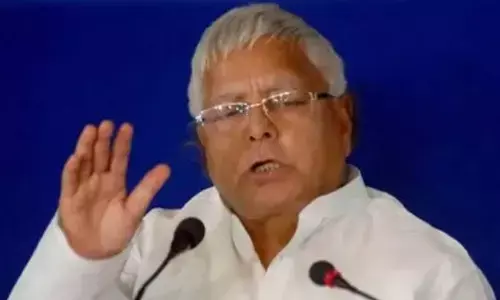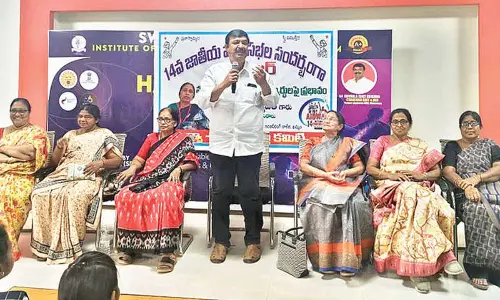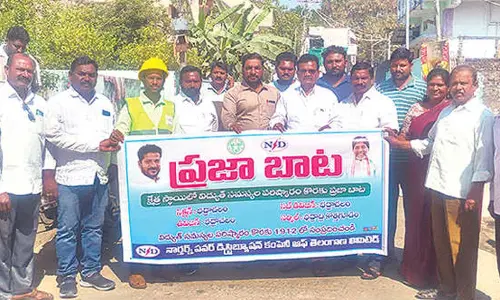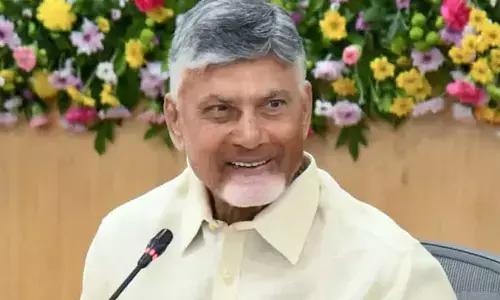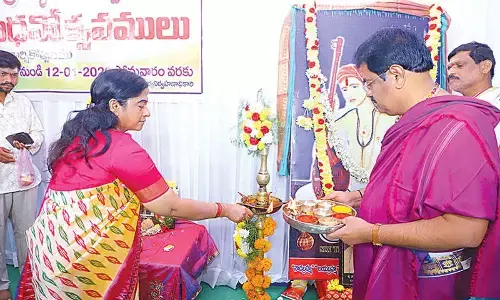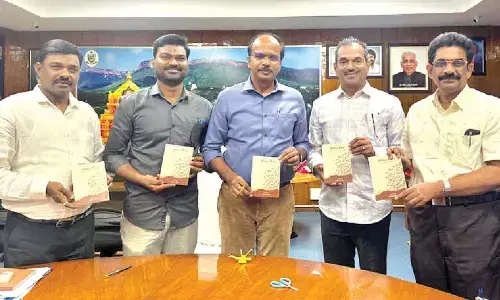Facilitating delivery of good governance
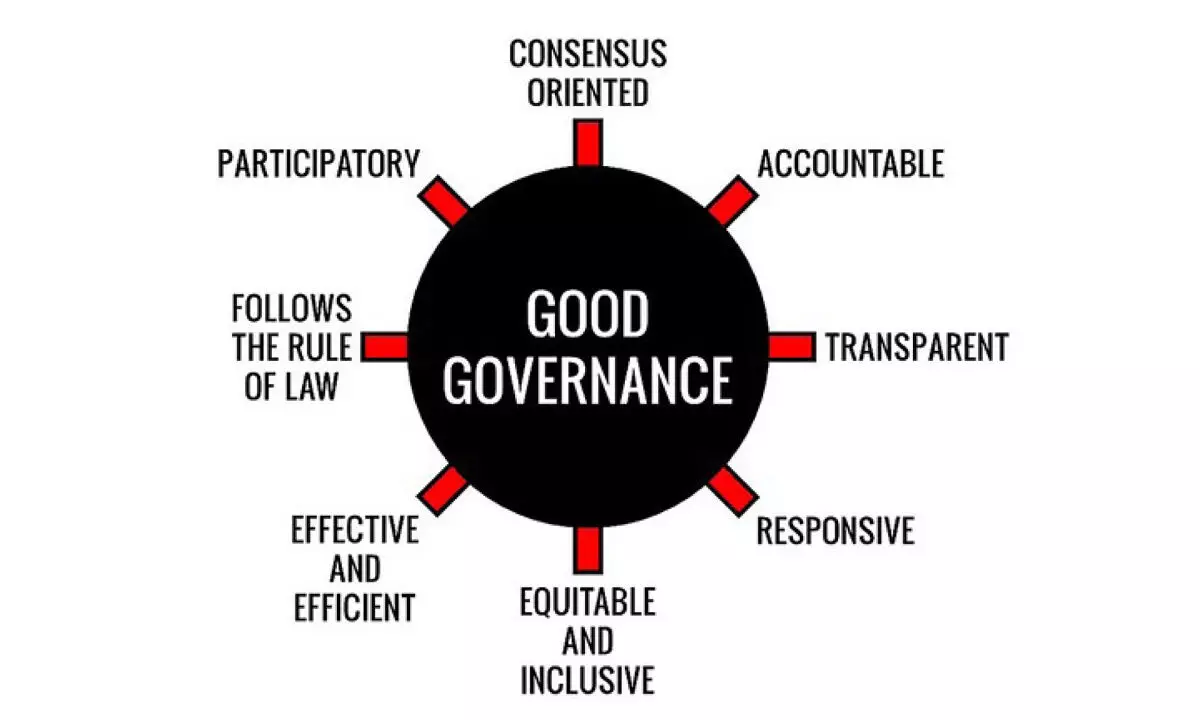
Quite on and off, if not frequently, Ministers and Chief Ministers stop convoy vehicle, apparently to listen to an individual on the roadside, of a personal grievance or a community-related problem
Quite on and off, if not frequently, Ministers and Chief Ministers stop convoy vehicle, apparently to listen to an individual on the roadside, of a personal grievance or a community-related problem. ‘Instantaneous Oral Orders on the Spot’ are issued to personal staff on the issue. Normally, these relate to availing benefit of a government scheme or inadequacies in accessing government information or related to certificates like death or birth or financial assistance for children’s education or land-related problem or medical issue or some injustice done etc. Same day, proliferated electronic media coverage, and print media coverage in n-number of papers, next day, would be as usual with huge hype.
This apart, these days, grievances are responded to randomly, at ‘Jet Speed’ through Facebook, Twitter, Instagram etc., and widely publicised. ‘Public Servants’ responding to this style of ‘Redressal’ for ‘Fortunate Few’ is a typical characteristic of our democracy. It is absolutely true that for a Chief Minister or for that matter even for a Minister, it is ‘Herculean Task’ to meet everyone or respond to everyone.
Yet another ‘Orthodox’ grievance redressal mechanism, followed in many states, is that of centralised or limited decentralized (up to District Level) gatherings to receive complaints or listen to those seeking benefits, similar to Telangana ‘Prajavani’ programme. But, going by media reports, lakhs of applications received at such meetings are pending for disposal, which is but natural. This demands further decentralised mechanism. In other words, there is a need to put in place a ‘Structural Decentralised Administrative Machinery’ down to the field level, like the ‘Public Facilitation Center,’ each catering to a specified number of people, as ‘Hallmark of Good Governance’ headed by a knowledgeable, skilled, and committed ‘Field Level Public Relations Officer (PRO).’
Inder Kumar Gujral, the 12thPrime Minister of India, while inaugurating a historic conference of Chief Ministers on May 24, 1997, emphasised the essentiality of appropriate strategies for ‘Responsive and Effective Administration,’ aptly referring to first PM Jawaharlal Nehru’s statement that, “Belief in Fair Play and Integrity shall be the basis of a Good Governance.” The conference attended by all CM, irrespective of party affiliations, unanimously resolved to ensure ‘Responsive, Accountable, Transparent and People Friendly Administration’ at all levels in Central and State governments.
What was envisioned then was an 'Accountable and Citizen-Friendly Government' to ensure widespread, hassle-free, and easy access of citizens to information at various levels in the government, on various activities with specific reference to welfare and development schemes, as well as to obtain various certificates, approvals, and permits. It was decided for a simplified and speedy mechanism through, what they coined then, as ‘Public Facilitation Center (PFC).’
Down the line, how many Chief Ministers adhered to their own resolve ‘At Least Passively’ is anybody’s guess. N Chandrababu Naidu was AP CM then, and in spite of his taking great lead, it was later shelved by successive Chief Ministers for reasons better known to them. In the present changing scenario, with appropriate modifications, PFC best suits the peoples’ need.
On reading my article – ‘A Vision for Better Governance in TS’ – published in ‘Hans India’ on January 28, a keen observation was made by MP Sethy, a ‘Top Ranker Master Trainer,’ product of ‘Thames Valley University’ and credited with drafting ‘National Training Policies’ of 1996 and 2012. He was my senior colleague in Dr MCR HRD Institute. He described the contents as a well-researched, articulated and presented in a flow. He also said that it initiated and ignited the thought process on a number of significant issues related to implementation of government schemes.
Sethy, however, preferred an elaboration on orthodox way, feedback, and feed forward, unintentional Hitches, mentor, facilitator, counsellor, teacher, researcher, mediator, and advocate, as well as ‘Cascading and Multiplication’ training technique to ‘Field Level Public Relations Officers’ to equip them with intricate details involved in availing benefit of a government scheme and to take care from end to end. This was where dovetailing PFCs and Filed Level PROs becomes necessary.
For the proposal to put in place a ‘Structural Administrative Machinery’ for a ‘Better or Good Governance’ anywhere in the country including in Telangana, by way of recruiting ‘Field Level Public Relations Officers (PROs)’ as Mentors and Facilitators, duly following procedure, to be in charge and head the ‘Public Facilitation Centers,’ the first next step is ‘Induction Training’ where they will be systematically oriented to various government schemes by ‘Subject and Training Experts.’ ‘Training is a Systematic Process of Learning’ and its purpose in the work situation is to develop the abilities of ‘Designated PRO’ to the satisfaction and necessity of the government concerned.
Persons recruited as Field level PROs are supposed to have had a distinguished academic background. In addition, their academic knowledge and basic understanding of government schemes and policies, commitment and attitude would have been properly evaluated by the recruitment agency (Maybe Public Service Commission), before offered the coveted job. Despite the possibility that these persons, on their own may take up the job immediately, to better absorb details of their job profile, requiring a precise learning need, a ‘Systematic Training Intervention’ is desirable and necessary. It gives job-task related ‘Confidence (through knowledge of government policies), competence (through skill), and commitment (through right attitude)’ for required performance as per the government need.
A not-so-lengthy workshop mode of training may have to be designed by training experts.PRO designated persons, before they are put on the job, will be exposed to group coaching, lecture, discussion and group exercises for absorption to the details of environment (rural or urban) that they have to work, technology (for processing beneficiary needs speedily), procedures and policies, all in about a week. By then, it is expected that the systematic development of ‘Attitude, Knowledge, and Skill Behavior Pattern’ required by PROs designated would be successfully achieved.
Cascade training is a way of efficiently training many people, wherein a group of Master Trainers are trained in a topic; then, they train smaller groups on the same topic, and so on, until all necessary staff have been trained. Transfer of learning depends on well-planned trainings; competent, supportive, and prepared trainers; and feedback mechanisms.
With proper training the individual PROs in course of time will become Demonstrators of Model Performance and all that is desirable; a better communicator in every aspect of scheme details to the prospective beneficiary, sharer of government policies, intentions and goals with the people in his or her group, simplifier in explaining procedures of obtaining benefit of a scheme to the right beneficiary, creator of learning environment on new and ad hoc schemes to the public, a mentor, a facilitator, a change agent and a catalyst for initiating change. By this, he or she will be facilitating organisational change in governance.
This type of ‘Service Delivery Strategy’ enables the PRO to translate broad objectives and policy preferences of government into specific services and balances service delivery outputs with resource inputs. The approach is, focused, fast, friendly, and flexible way taking into consideration the comprehensive requirement of individual, fitting precisely into government thinking. These change agents who are mentors or facilitators or counsellors by education, by training and by development will possess appropriate listening skills, demonstrate high-level of integrity, empathetic, confident, high performer, highly motivated, resourceful, disciplined and will have a positive attitude. Why not dovetail PFCs and Field Level PROs for good governance, which requires ‘Availability and Accessibility’ mechanism.








